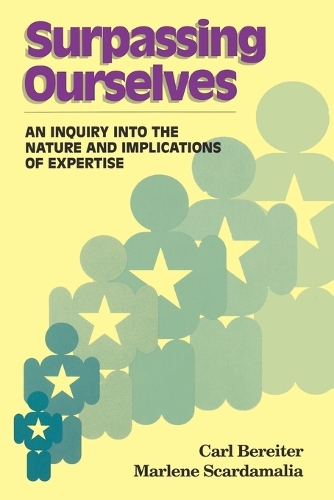
Surpassing Ourselves: An Enquiry into the Nature and Implications of Expertise
(Paperback)
Publishing Details
Surpassing Ourselves: An Enquiry into the Nature and Implications of Expertise
By (Author) Carl Bereiter
Open Court Publishing Co ,U.S.
Open Court Publishing Co ,U.S.
27th January 1994
United States
Classifications
Tertiary Education
Non Fiction
Cognition and cognitive psychology
370.15
Physical Properties
Paperback
296
Description
Expertise has been around since the dawn of civilisation, but until recently the creation of experts was able to go on without anyone having to understand it, or pay any attention to its social impact. Today, as societies compete to produce more and better experts, the need grows to understand expertise - what lies behind expert performance, how it is acquired, and what keeps people functioning like experts. The authors examine the nature of expert knowledge, both the part that shows and the much larger part that is hidden, and offer an explanation of how it comes about. Hard work, practice, and experience are not enough to make an expert. The expert is recognised by an ability to solve nonroutine problems in a given domain. The expert's secret is their willingness to work at the edge of their competence and to keep reconstructing their skills at higher levels. Expertlike tendencies have been found in some university students, and even some schoolchildren function more like experts than like the other students in their classes. Yet schooling often undermines the development of expertise. Bereiter and Scardamalia describe a kind of classroom culture, the "knowledge-building community" which supports expertlike learning, and extend these ideas to the picture of an "expert society", in which expertise is normal rather than exceptional. Expertise is an expression of the uniquely human potential to go beyond the competencies given us by nature.
